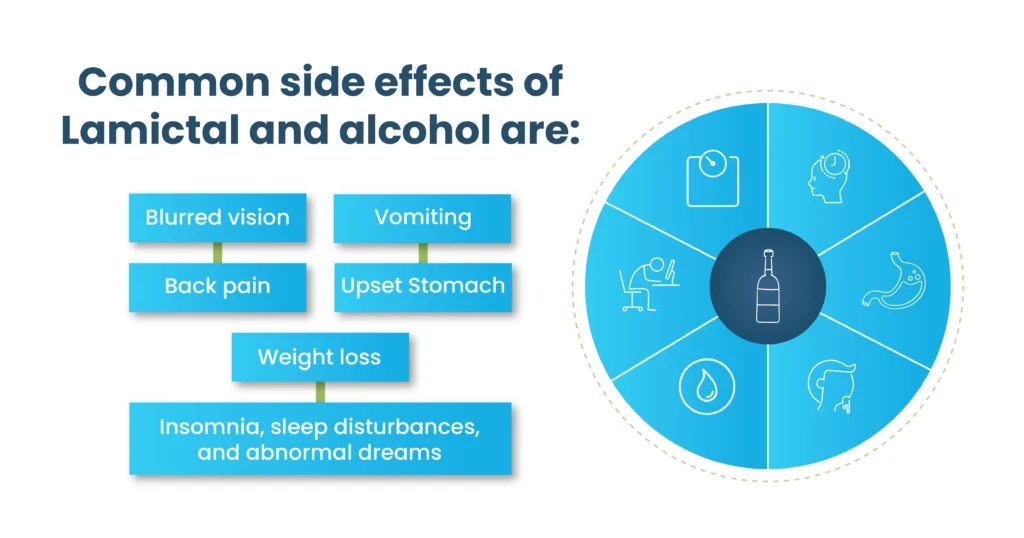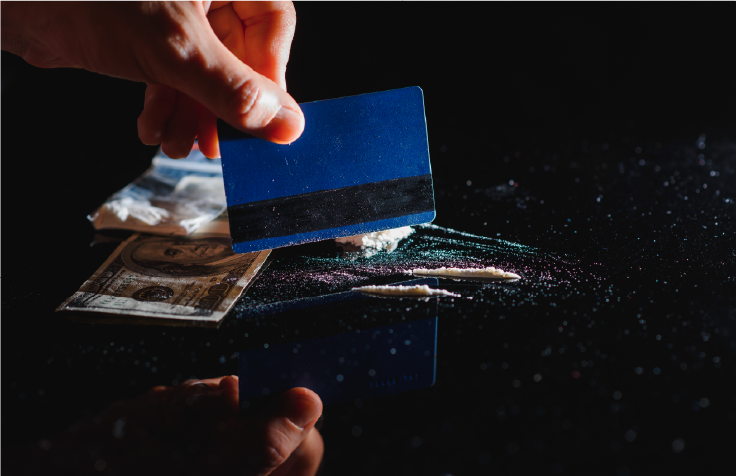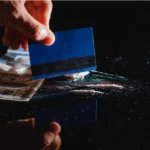Lamotrigine, also known by the brand name Lamictal, is a medication for epilepsy that also treats bipolar disorder. It treats the manic and depressive periods of adult bipolar disorder and prevents and controls epileptic seizures.
The most prevalent neurological condition in America, epilepsy, affects around 50 million individuals. Bipolar disorder is the second most common and affects nearly 45 million people.
With over 11 million prescriptions written for it in 2018, Lamictal is one of the most prescribed medications for bipolar disorder or epilepsy.
If you are consuming Lamictal, you must have wondered about its interaction with alcohol. Since alcohol is harmful, mixing it with an OTC drug or prescribed medication can have detrimental effects.
Side effects of alcohol interactions with Lamictal range from mild to severe.
Lamotrigine
Lamotrigine is sometimes mixed with other drugs under medical supervision to control seizures and prevent mood swings in adults. This anticonvulsant drug and alcohol act on the central nervous system and interact with brain chemicals.
Although most specialists believe Lamictal is not addictive, stopping it suddenly can cause withdrawal symptoms. Patients have described experiencing withdrawal seizures after discontinuing Lamictal and relapse of bipolar disorder symptoms.
Other Lamictal withdrawal signs:
- low mood
- Hostility
- Lethargy
- Loss of focus
- Headaches
- Body tingling
- Suicidal Thoughts
The body and duration of use have an impact on these symptoms. Lamictal is one of several medications people abuse to block out unpleasant emotions and escape reality.
As a result, tapering the dose of Lamictal is crucial rather than abruptly stopping it. Whenever you want to stop using it, speak with your doctor to get help.
Your doctor will wean you off the medication after two to three weeks of gradually lowering the dose. You won’t experience Lamictal withdrawal symptoms if you do this.
If your family member is going through substance abuse, you can help them by contacting Haven Detox-South Florida, where we provide residential services to support patients recovering after detox.

Lamotrigine for Bipolar I Disorder
Bipolar I disorder and bipolar II disorder are the two subtypes of bipolar disorder. In bipolar I disorder, as opposed to bipolar II, the signs of mania and depression are more severe. Lamictal has FDA approval to treat bipolar I disorder.
Adults or adolescents receiving treatment for bipolar disorder or are weaning off of other drugs used to treat bipolar disorder may be prescribed Lamotrigine by their doctor.
Lamotrigine doses may be reduced for older persons since they may be more sensitive to its effects.
People who take Lamotrigine frequently report feeling able to put things in perspective and less receptive to stress. They typically still experience depressive days, but they are typically shorter and less severe.
Lamotrigine can cause a skin rash in children under 18 if the dosage is given too quickly. Numerous studies support the use of Lamotrigine for treating bipolar illness in children despite the severe potential side effects.
Alcohol
Lamictal shares many of the same harmful side effects as alcohol. Dizziness, tiredness, confusion, and difficulty concentrating are common symptoms. Alcohol can exacerbate these symptoms when taken concurrently with Lamictal.
As a result, it can be risky to do work and other chores after combining these substances.
Although there are presently no particular cautions against using Lamictal and alcohol together, the symptoms of both substances may get worse when combined. But when taking Lamictal medicine, you should limit your alcohol consumption.
One drink per day for women and two for men is considered moderate alcohol consumption. A drink is 1.5 ounces of liquor, five ounces of wine, eight ounces of malt liquor, or twelve ounces of beer.
Alcohol and Bipolar I Disorder
Bipolar disorder can be directly impacted by alcohol use. Because of their symptoms, many individuals with bipolar disorder who drink alcohol may abuse it.
Bipolar disorder patients are more inclined to act impulsively during manic stages, such as drinking large amounts of alcohol. This alcohol abuse frequently brings on alcohol dependency.
To deal with their anxiety and depression during the depressive phase of the disorder, people may drink alcohol. Alcohol can exacerbate the signs and symptoms of bipolar disorder rather than lessen them.
The likelihood of mood swings can rise when alcohol is consumed. Additionally, it may lead to more aggressive actions, depressive episodes, and suicidal thoughts.
Dangers of Mixing Alcohol and Lamictal
Being a depressant, alcohol slows down the central nervous system. Some of the messages that are trying to reach the brain are blocked by alcohol.
A person’s perceptions, emotions, mobility, vision, and hearing are all affected by alcohol. Alcohol can make someone feel more at ease or less worried in highly tiny doses.
Intoxication results from the brain’s alterations brought on by more alcohol. Overindulgent drinkers may stumble, become uncoordinated, and slur their words.
They will likely feel bewildered and puzzled. Intoxication can make someone very friendly and talkative or hostile and angry, depending on the individual.
Lamictal works by preventing calcium channels in neuronal membranes that trigger seizures. Lamictal also enhances the level of GABA to decrease neuronal excitation to guard against excitotoxicity.
This drug also has anti-depressant characteristics that prevent depressive episodes. However, there is a warning sign label because it can have life-threatening effects on some individuals. That is why it is advised to ask a medical professional about medications.
Alcohol can increase the mild side effects of Lamotrigine because they both increase the amount of GABA. GABA is the neurotransmitter in the brain and spinal cord; an increased level of this neurotransmitter can result in symptoms of depression.
Other common side effects of Lamictal and alcohol are:
- Blurred vision, double vision
- Nausea and vomiting
- Back pain
- Stomach upset and loss of appetite
- Weight loss
- Insomnia, sleep disturbances, and abnormal dreams
- Joint pain
- Tremors
- Dysmenorrhea
- Skin irritation or severe skin rash
- Stiff neck
- Dry mouth
- Difficulty in balancing the body
- Euphoria
- Apathy
- Taste problems
- Panic attacks
- Depression
- Twitching
- Leg cramps
- Uncontrollable eye movements
- Irregular breathing
- Irregular heartbeat
It’s common practice to prescribe Lamictal to treat bipolar disorder symptoms. Using Lamictal plus alcohol simultaneously, as you have bipolar disorder symptoms, can have serious consequences.
For instance, addiction, which can arise when someone uses drugs or alcohol as a form of self-medication, affects many people with bipolar disorder. Also, bipolar disorder may make you more likely to develop an alcohol use disorder.
The amount of alcohol a person consumes may also change depending on the stage of their bipolar disorder:
Some bipolar patients may drink during a manic period because they feel less restrained. Other patients with bipolar disorder may drink to feel better during a depressive episode.
Drinking can intensify mood swings and raise the risk of addiction, violence, depression episodes, and suicide in those with bipolar disorder. Before drinking alcohol while taking Lamictal to treat bipolar disorder symptoms, you should talk to your doctor.
If you experience the signs and symptoms below, your pharmacist can help you:
- Drowsiness
- Respiratory problems
- Dizziness
- Impaired motor reflex
- Coma and extreme shifts in mood
Alcohol and the majority of drugs interact. Alcohol use is not advised if you take Lamotrigine because it may worsen these side effects. These interactions can be dangerous, especially if someone takes Lamotrigine and drinks too much alcohol.
Due to this interaction, a person may experience severe CNS depression, severe respiratory depression, a potentially fatal skin rash, and death in extreme circumstances.
As a result, it is advised to drink alcohol sparingly or not at all when using Lamotrigine. Furthermore, it would be best to put off finishing risky or attention-demanding tasks until you know how they affect you.
Is Lamictal Addictive?
A second-generation antiepileptic drug called Lamotrigine is used to treat epilepsy and stop depression in people with bipolar disorder.
It functions as a mood stabilizer for people with bipolar disorder, the first-line treatment for focal seizures, and a second-line treatment for generalized seizures.
Lamictal is a psychiatric drug, and if consumed for a long time, it can cause physical dependence. An individual will find it difficult to avoid using this drug.
Even if they try to reduce or quit its dose, they will likely experience withdrawal symptoms. Although this drug is not addictive, long-term use can result in substance abuse.
In some cases, people combine it with alcohol to enhance its effect. Patients have reported experiencing withdrawal symptoms. People who abused this drug with bipolar disorder experienced intense symptoms of depression.
Some of the side-effects of Lamictal are:
- Blurry vision
- Nausea
- Vomiting
- Weight loss
- Insomnia
- Muscle pain
- Joint pain
- Tremors
- Euphoria
- kidney disease
- Panic attacks
- Depression
Potential Risks of Lamictal
If you have alcohol dependence, you must inform your doctor about your drinking problems before consuming this mood stabilizer drug.
Even moderate amounts of alcohol can interact with Lamictal and can worsen your symptoms of bipolar disorder. Many treatment options are available at rehab centers to help you recover from alcohol use disorder.
Talk to your doctor about the potential risks of Lamictal including:
Allergies
This seizure medication can result in an allergic reaction which is why it is essential to inform your doctors if you have an allergy to any ingredient in the medicine.
Before using any medications, read the package label carefully to avoid medical emergencies.
Pediatric
The effectiveness of disintegrating tablets, lamotrigine chewable tablets for suspension, or tablets in kids of two years of age and older with certain types of seizures has not been shown to be limited by pediatric-specific issues.
However, safety and effectiveness in children under the age of two have not been proven.
Geriatric
Even though adequate research on the effects of Lamotrigine in the senior population has not been done, geriatric-specific issues are not anticipated to limit Lamotrigine’s utility in the aged.
The dose of patients using Lamotrigine may need to be changed, as elderly patients are more likely to experience age-related liver, renal, or heart issues.
Breastfeeding
There are not enough studies on women to determine the harm to the baby by using this medicine with breastfeeding.
Before using this drug during nursing, weigh the potential advantages against the potential drawbacks. For breastfeeding mothers, regular exercise with a good diet can be helpful instead of long-term treatment with Lamictal.
Pregnancy
A congenital impairment known as cleft palate has been linked to greater rates of lamotrigine use during pregnancy.
Call your doctor right away if you find out you are pregnant while taking this medicine. Stopping the medication before talking to your doctor can result in rebound seizures that could endanger the mother and unborn child.
Frequently Asked Questions (FAQs)
Can drinking alcohol trigger mania?
Alcohol consumption may also result in alcohol-induced hypomania, as research links drug abuse to the rapid cyclical nature of moods.
The NIH warns that the combination of alcohol usage and hypomania may be dangerous.
High levels of stress are among the potential causes of mania or hypomania. Other causes include altered sleep habits or sleep deprivation and using alcohol or drugs recreationally.
Can I mix alcohol with Lamictal?
Lamotrigine’s adverse effects may worsen if you drink alcohol. It is not advised to combine even tiny quantities of Lamictal with alcohol.
Consuming both Lamotrigine and alcohol increases the side effects of Lamictal by significantly increasing the levels of GABA, the inhibitory neurotransmitter that causes drowsiness, lethargy, sedation, reduced motor reflexes, coma, and respiratory depression in the brain and spinal cord.
That is why it is not a good idea to combine Lamictal and alcohol.
What happens if someone who does not have bipolar I disorder takes Lamictal?
Lamictal is a medication used to treat bipolar I disorder and some epilepsy and seizures. As a result, patients with diseases other than bipolar I disorder can use the medication.
Even if you do not have bipolar I disorder, a specific type of epilepsy, or seizures, taking Lamictal still puts you at risk for adverse side effects.
It is not recommended to take Lamictal unless a doctor has prescribed it for you.
Is it safe to drink while on Lamictal?
It is not recommended to drink alcohol while taking Lamictal. The two together may cause drowsiness, lethargy, reduced motor reflexes, difficulty breathing, or death.
There are two forms of bipolar disorder, and they often co-occur. Because alcohol consumption directly affects bipolar disorder, it can increase its harmful effects.
Get Help to Start a Healthy Life at Haven Detox-South Florida
People who are diagnosed with bipolar disorder are more prone to misuse alcohol. Individuals treating their bipolar disorder with Lamictal may put their lives in danger by drinking alcohol.
If you or your friend is struggling with a substance abuse addiction, seek help at Haven Detox-South Florida.
We offer inpatient residential treatment to support patients after detoxification. Our facility provides each patient with coping skills and therapies to prevent relapse. For more information about our services, contact us today.











